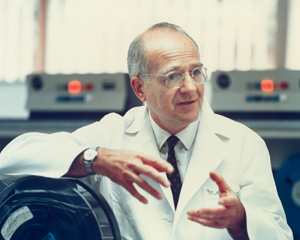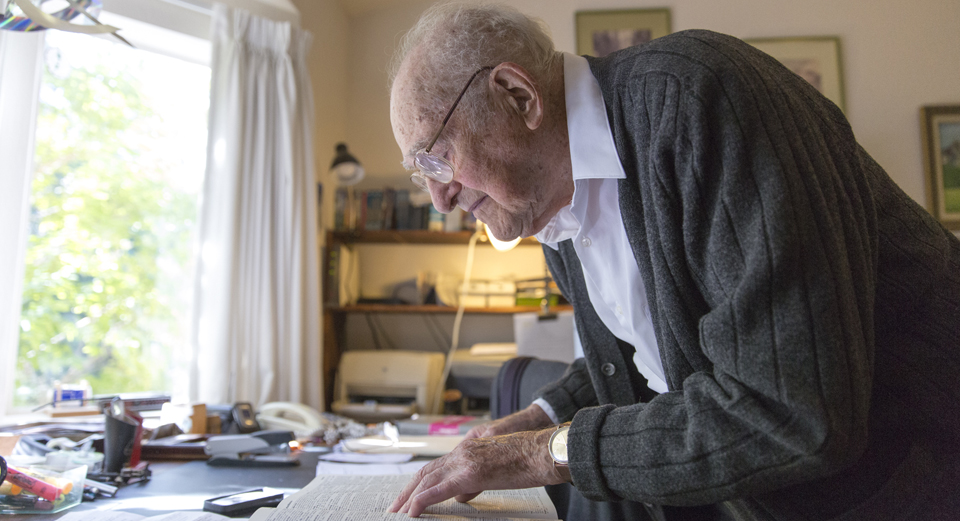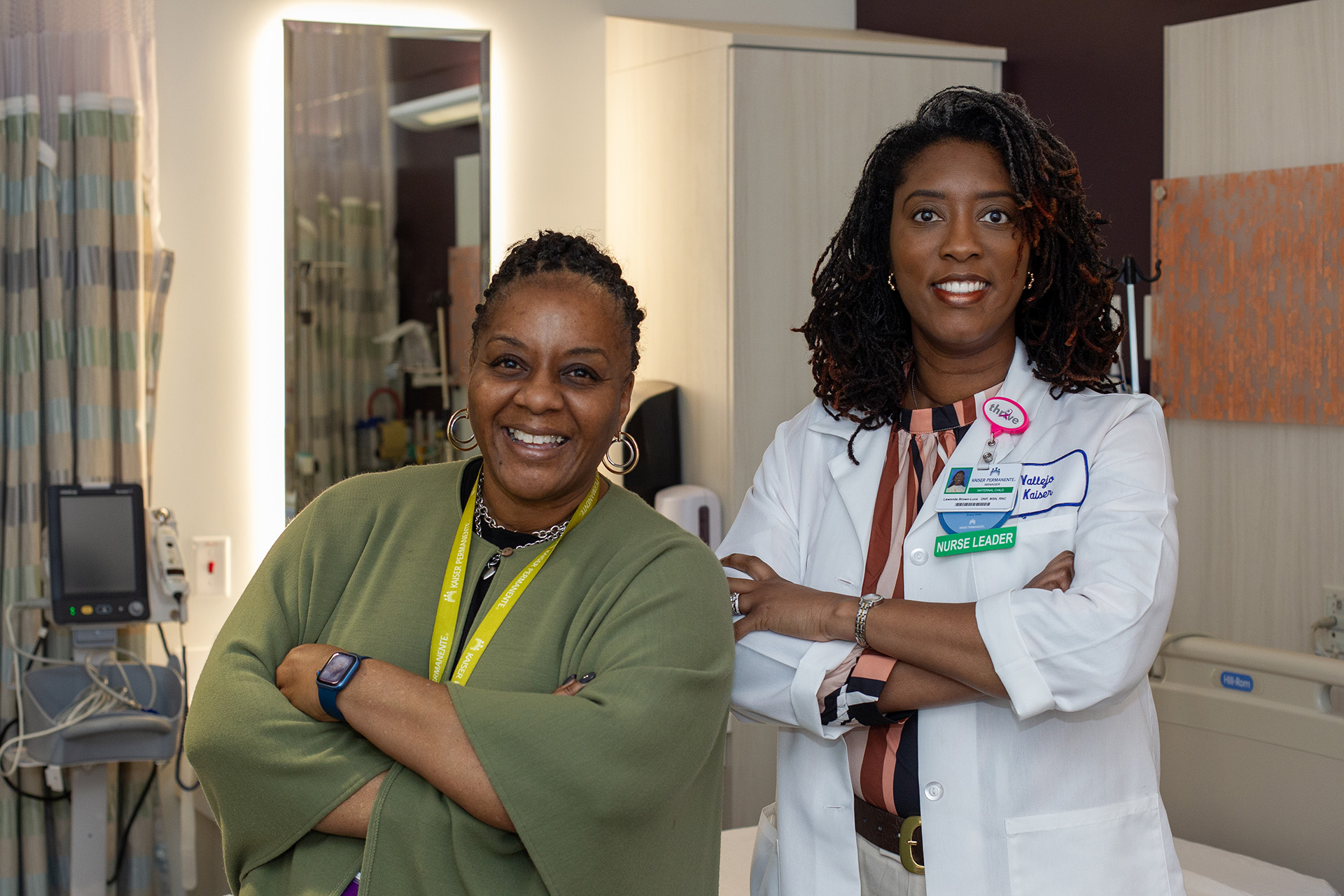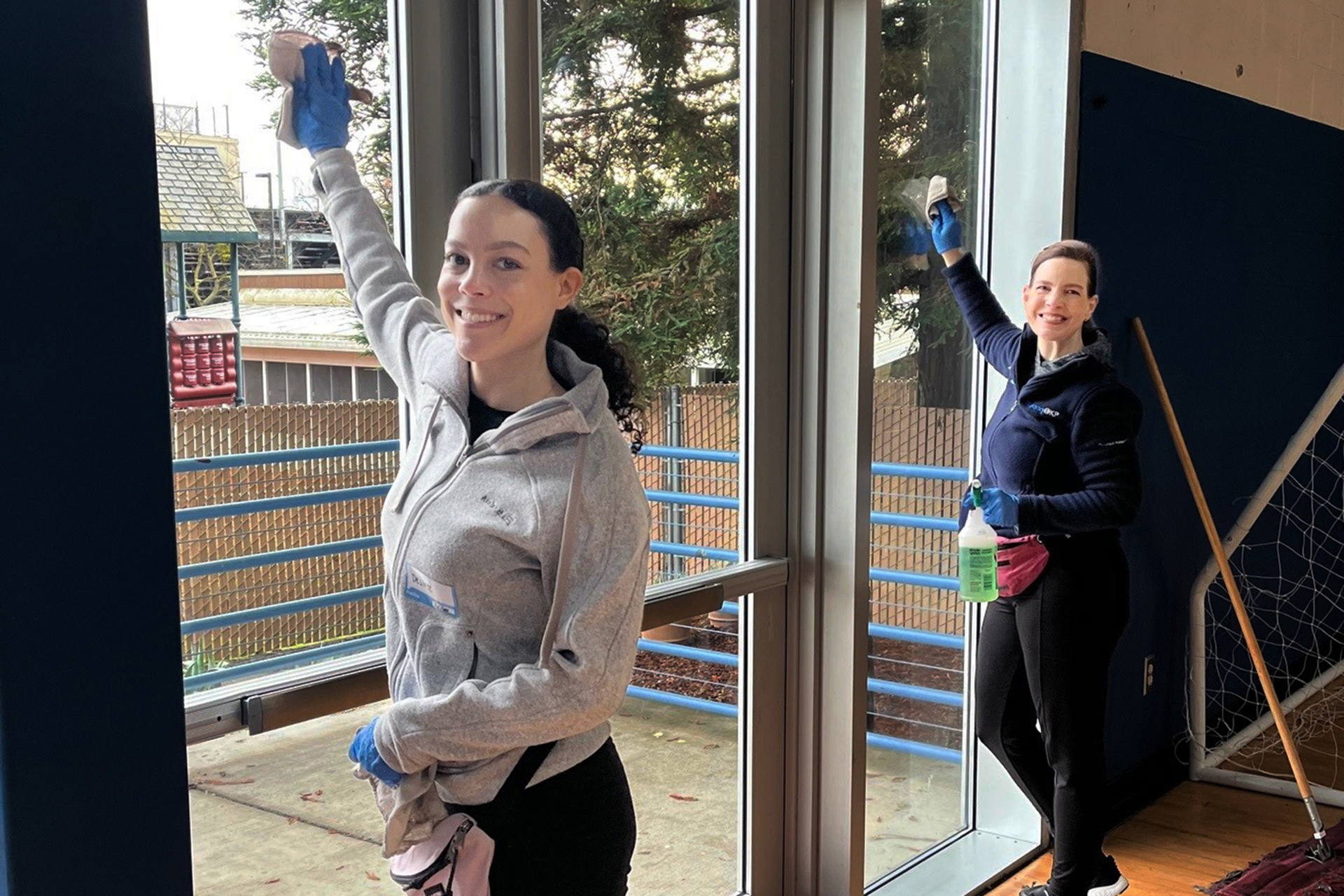Dr. Collen’s work in medical informatics helped shaped today’s use of computers in health care.
Kaiser Permanente’s Morris F. Collen, MD, an original partner in The Permanente Medical Group, founder of the Kaiser Permanente Division of Research, and a pioneer in the use of computers in medicine, died on September 27, at the age of 100. The cause of death was cancer, diagnosed several months after his 100th birthday.
From his time as a young doctor administering to Henry J. Kaiser’s shipyard workers in Richmond, Calif., in 1942, to his pioneering work in research and medical informatics, Dr. Collen made internationally recognized contributions to Kaiser Permanente, the field of medical informatics, and the public’s health.
“Morrie had a very special combination of creativity, optimism, persistence, and humility,” said Tracy Lieu, MD, director of the Division of Research, Kaiser Permanente Northern California. “Even at age 100, he was an intellectual contributor and a powerful inspiration for our current generation of researchers and physicians. His ideas in medical informatics formed the foundation of how we use computers in health care and research today.”

“Morrie Collen was one of the most dedicated, visionary leaders this nation has even known,” said Robert Pearl, MD, executive director and CEO of The Permanente Medical Group. “Fifty years ago he could see the power of technology, the importance of the Division of Research, and the need for physician leadership in health care. His career in TPMG spanned seven decades, and his contributions will live on forever.”
Founding Physician of TPMG
Dr. Collen attended the University of Minnesota, where he earned a bachelor’s degree in electrical engineering in 1935. He credits wife, Frances Bobbie Collen, a registered nurse, with steering him toward a career in medicine. In 1938 he earned his MD with distinction from the University of Minnesota School of Medicine. After an internship at Michael Reese Hospital in Chicago, a residency in internal medicine at USC/Los Angeles County General Hospital brought him to California, where he began his career-long association with Sidney R. Garfield, MD, Kaiser Permanente’s founding physician.
In 1948, Dr. Collen became one of the seven founding physicians of The Permanente Medical Group. He served as chief of medical services from 1942 to 1952 at Kaiser Permanente’s Oakland hospital and was medical director from 1952 to 1953. From 1953 to 1961, he served as physician-in-chief of Kaiser Permanente’s San Francisco hospital.
Pioneer in Penicillin, Multiphasic Exams
During World War II, Dr. Collen was among the first doctors to experiment with the treatment of pneumonia as he managed a large number of cases at the Kaiser Richmond shipyards.
“When we first started, there was no treatment … except horse serum, and the people almost always got sick with serum sickness,” Dr. Collen told an interviewer. “That’s when we began, I would say, our first clinical research, evaluating different treatments for pneumonia.”
While 90 percent of the available supplies of the new wonder drug, penicillin, went to servicemen overseas, Kaiser Permanente got the first dose available in California, which Dr. Collen used to treat a terribly ill young man. Dr. Collen was astounded by the results: “To this day I keep saying it was a miracle. He recovered.”
During the 1950s, with a postwar shortage of physicians, Dr. Collen developed the multiphasic health checkup, a series of procedures and tests given to thousands of Kaiser Permanente members that screened for conditions such as heart disease, diabetes, and cancer.
The tests were revolutionary in that they not only saved physicians’ time but also constituted a significant experiment in preventive care.
Computers in Medicine
In 1961, Dr. Garfield asked Dr. Collen to attend a conference on biomedical electronics. “[Dr. Garfield] thought the time had come for doctors to use computers in patient care,” Dr. Collen wrote several years ago. “Of course, he was right; and I found this meeting in New York to be very exciting.”
Upon his return, Dr. Collen founded the Kaiser Permanente Northern California Department of Medical Methods Research — today’s Division of Research (DOR) — and built a research institution renowned as a trailblazer in drug safety, risk-factor epidemiology, health services and policy, genetics research, and other areas. He served as its director until 1979.
By 1964, Dr. Collen’s multiphasic team was manually screening 25,000 patients per year. They set to work to automate the 13-year-old health-screening exam, developing a prototype electronic health record. Results, including lab analyses, were fed by punch card into what was considered at that time to be a huge IBM mainframe computer.
In the early 1960s, it was a strange idea to store data on a drive in bits and pieces to yield comprehensive patient histories and inform the treatment of patients. But it worked, and information was then available to help doctors make informed decisions and researchers identify trends in that could lead to improvements in health care.
Population-Based Research
From this first computerized database, large-scale population research was born at the Division of Research. Under Dr. Collen’s leadership, Kaiser Permanente became one of a handful of places in the world to start this pioneering work in medical informatics.
Over the next 40 years, the multiphasic database alone provided material for more than 500 papers published in more than 75 medical journals. Dr. Collen’s curriculum vitae included more than 190 scientific papers.
Dr. Collen wrote six books on medical informatics. The American College of Medical Informatics named the highest honor it bestows the Morris F. Collen, MD, Medal for Outstanding Contributions to the Field of Medical Informatics—which Dr. Collen himself earned in 1993.
Dr. Collen served on some three dozen national international and national health care and scientific research governing boards and committees during his career. He was elected to the Institute of Medicine of the National Academy of Science in 1981, and served as Chair of the National Library of Medicine’s (NLM) Board of Scientific Counselors from 1985 to 1987. As an NLM scholar-in-residence from 1987 to 1993, he wrote a definitive history of medical applications of the computer.
Born on 11/12/13
On Nov. 12, 2013, Dr. Collen celebrated his 100th birthday and more than 50 years with the Kaiser Permanente Northern California Division of Research.
Well into his 100th year, Dr. Collen had continued to write and consult with DOR researchers on the management of electronic health records and databases. He was nearing completion of a comprehensive update to his 1995 book, A History of Medical Informatics in the United States, 1950–1990, from his home in Walnut Creek, Calif. The Permanente Medical Group will ensure that the book is published posthumously.
Reflecting on nearly seven decades of service to Kaiser Permanente and its members, Dr. Collen summed it up this way: “I have traveled the world and seen health care programs in Europe, Asia, and elsewhere, and if there is such a thing as reincarnation, I am going to come back and be a Kaiser Permanente doctor.”
Dr. Collen is survived by two sons, Barry Joel Collen of Rhode Island and Randal Collen of Santa Rosa, Calif., and a daughter, Roberta Joy Hayertz, MD, of Arroyo Grande, Calif., as well as nine grandchildren and five great-grandchildren. His wife of 60 years, Frances Bobbie Collen, and son, Arnold Roy Collen, preceded him in death. A private service will be held for family and colleagues in Walnut Creek, Calif.
In lieu of flowers, the family requests that donations in Dr. Collen’s memory can be made to the “Morris F. Collen Medical Informatics Fund.” Donation checks should be addressed to Kaiser Foundation Hospitals and sent to Kaiser Foundation Hospitals, c/o Institutional & Planned Giving, 1800 Harrison Street, 25th floor, Oakland, CA 94612.
Read The Legacy of Morris F. Collen, MD, and watch a photo essay celebrating Dr. Collen’s November 2013 birthday.





This Post Has 5 Comments
I had read about Dr. Collen last year and was inspired. Today, as I read this article, I am very inspired by a man who lived his life with integrity and was such an extraordinary human being who contributed so very much to Kaiser and the world around him. If ever there was a great role model it would be easily Dr. Collen.
Stories such as these are inspiring, and I thank you for sharing this story.
I met and was treated by Dr. Morrie Collen back in the mid fifties / sixties. He was one of the original “partnership” doctor group, of which my father (Dr. Robert C. Cogswell Jr., MD) was also a member. We all called him Morrie back then. He has lived an outstanding life and I hope his spirit will live with Kaiser for many generations to come …
I remember his article from last year and it touched me at how he would make sure he got up to climb stairs and exercise even at his age … how inspiring!
Wow!!! Extraordinary human being. Thank you, Dr. Collen, for all your contributions all these years. Wonderfully written.